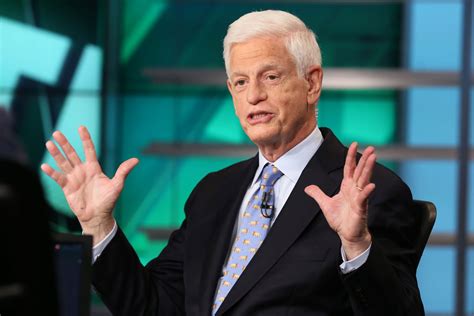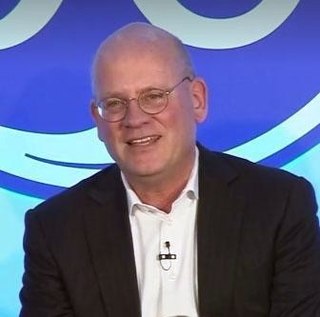Top 56 Mergers Quotes & Sayings
Explore popular Mergers quotes.
Last updated on April 14, 2025.
There are black companies that are very active in the economy, that are growing and not on the basis of mergers and acquisitions, but because of putting new money into their particular companies and, therefore, their particular sectors. Indeed, if they didn't do that, they would collapse as companies.
Look, rich people already have a lot of money. There's literally trillions of dollars in cash held by corporations, their stock valuations at an all-time high. They do not need a tax cut to do anything. They can invest now, if they wanted to. They don't want to, because they can make more money just by mergers and stock buybacks and stuff like that. So, this is really just sort of a travesty.
Globalization has considerably accelerated in recent years following the dizzying expansion of communications and transport and the equally stupefying transnational mergers of capital. We must not confuse globalization with "internationalism" though. We know that the human condition is universal, that we share similar passions, fears, needs and dreams, but this has nothing to do with the "rubbing out" of national borders as a result of unrestricted capital movements. One thing is the free movement of peoples, the other of money.
The greatest wealth of this nation is not only the mergers of giant corporations or the possibility of further globalization of the infrastructure of the world. In the United States, our greatest single source of wealth is the minds and talent of our young people. Not to use it is stupid - to waste it is a crime.
For acquiring companies, the excitement is almost always about where they are going - that is, their strategy for gaining greater growth and productivity. But when mergers fail, it's often because no one focused on who they are - that is, their culture, which is critical to successfully bringing different groups of people together.
I mean look at all these acquisitions and mergers - WhatsApp and Oculus and et cetera. There's no way that you can envision these tech companies as the underdog anymore. They're always presented as though they were these little guys who you should be championing - Facebook will overthrow the cable television complex, blah blah - but it's more likely they will merge with them.
Divestitures have long been the preferred remedy for horizontal mergers, where there's an overlap between the two companies. Airlines, for example, may have to sell routes or airport gates where the two airlines compete; cable operators may have to sell operations in cities where both companies operate.
I started in investment banking at Allen & Company in 1991. It was the go-go days of media mergers, and we were incredibly busy with one deal after another. Unlike typical investment banking groups, even in the midst of merger mania, we didn't have a formal face-time culture - and I felt empowered by that.
I'm anticlerical, not antireligion. If somebody believes there is God, I'm not interested in trying to persuade that person there is no intelligent design to the universe. Where I become interested and wake up is about the temporal power of religion, things like prayer in schools, or Catholic-secular hospital mergers.
Nature is flexible and resilient. Nature likes redundancy and dispersion. It is approximate and deals in gradients. All boundaries are permeable. Nature nests small systems like molecules within larger systems like cells, which in turn are nested in systems called organs, organisms, ecosystems. We grew from ancient one-celled ancestors. Nature likes mergers: we contain multitudes of other life forms within us. We stand at the crest of four billion years, bacteria molded into wondrous form, burning with a slow fire and about to take the next step.
When you buy enough stocks to give you control of a target company, that's called mergers and acquisitions or corporate raiding. Hedge funds have been doing this, as well as corporate financial managers. With borrowed money you can take over or raid a foreign company too. So, you're having a monopolistic consolidation process that's pushed up the market, because in order to buy a company or arrange a merger, you have to offer more than the going stock-market price. You have to convince existing holders of a stock to sell out to you by paying them more than they'd otherwise get.
The Internet has taken shape with startlingly little planning? The most universal and indispensable network on the planet somehow burgeoned without so muchasa boardofdirectors, never minda mergers-and- acquisitions department. There is a paradoxical lesson here for strategists. In economic terms, the great corporations are acting like socialist planners, while old- fashioned free-market capitalism blossoms at their feet.
There's probably more of a struggle to get material and narratives published that really speak to black culture. And that has a lot to do with the mergers and buyouts and the corporations being more in control of the purse strings. We find that the projects have to come with higher expectations rather than books that just should be published. That's disturbing because we might find fewer and fewer children's books by African Americans or with black cultural themes.
Utilities used deregulation to effect a series of mergers limiting competition. In order to accelerate profits, cost cutting ensued, involving the layoff of thousands of utility company employees, including some who were responsible for maintenance of generation, transmission, and distribution systems. A number of investor-owned utilities stopped investing in the maintenance and repair of their own equipment, and, instead, cut costs to enhance the value of their stock rather than spending money to enhance the value of their service.
Highly complementary airline alliances and mergers can bring important benefits to passengers by connecting networks, offering new services and generating efficiencies across the aviation value chain. However, this has to take place within a competitive environment. It is vital that the economic benefits of an airline alliance or merger are passed on to passengers.
the leader releases energy, unites energies, and all with the object not only of carrying out a purpose, but of creating further and larger purposes. And I do not mean here by larger purposes mergers or more branches; I speak of larger in the qualitative rather than the quantitative sense. I mean purposes which will include more of those fundamental values for which most of us agree we are really living.
Despite the fact that I trust the people at major labels who tell me that they want to offer me a home as a "stable artist," who can just do what he does for the long haul, time has shown that it rarely works out that way - the bottom line is the bottom line, not mention the threat of mergers and firings and whatnot, and people get dropped.
Despite the large number of mergers, and the growth in the absolute size of many corporations, the dominant tendency in the American economy at the beginning of [the 20th] century was toward growing competition. Competition was unacceptable...it was not the existence of monopoly that caused the federal government to intervene in the economy, but the lack of it.


















































